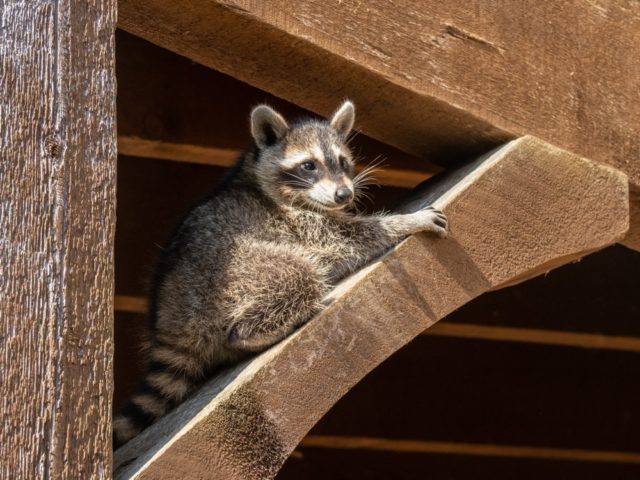Female raccoons tend to stick together in small groups called “fission-fusion” groups. They will meet up at resting or feeding places and share a common area. Call us if you noticed raccoon presents at your property for raccoon removal services in Toronto at
However, once pregnant, a female raccoon will separate herself completely from her sorority. She will find a safe, secure, sheltered place to nest where her family will be safe from predators and where she can nurse her kits in private until they are independent and ready to leave the nest.
So, if you notice an adult raccoon entering and leaving your attic, it’s most likely a female that is nursing a litter or preparing to give birth. Occasionally, in very cold locations during the winter months, you may see a male raccoon seeking shelter in your attic, but if it’s springtime, the intruder is almost certainly a pregnant or nursing female.
A close-up view of a female raccoon may reveal that she has protruding nipples. That’s a sure sign that she is nursing or in the latter stages of pregnancy.
Sounds of heavy thumping or scratching coming from your attic are usually reliable indicators that there is a female raccoon up there with a family. Squirrels and rats also scratch, but they are small and much lighter in weight than an adult raccoon, so the sounds that they make are totally different from those of a raccoon family.
Baby raccoons make distinctive vocal sounds. So, if you hear chattering, screeching, warbling, sounds, or a strange vibrating noise, you can be sure that there are baby raccoons living in your attic.
What to do if you discover a raccoon family living in your attic
Never try to remove a pregnant or nursing raccoon from your attic. Not only could you be injured in a confrontation, but you could also harm the animals. Also, never block the den entrance. If you separate the mother from her babies, she will become highly stressed, and the babies may starve. Usually, it’s best to wait until the youngsters are independent of their mother, and the family leaves the attic of their own accord.
If you really want to evict raccoons from your home, always call a professional wildlife removal services contractor to do the work for you. They know how to remove raccoons safely and without stressing the animals. Animal removal services will also know just where the family can safely be relocated to give them the best chance of survival.

